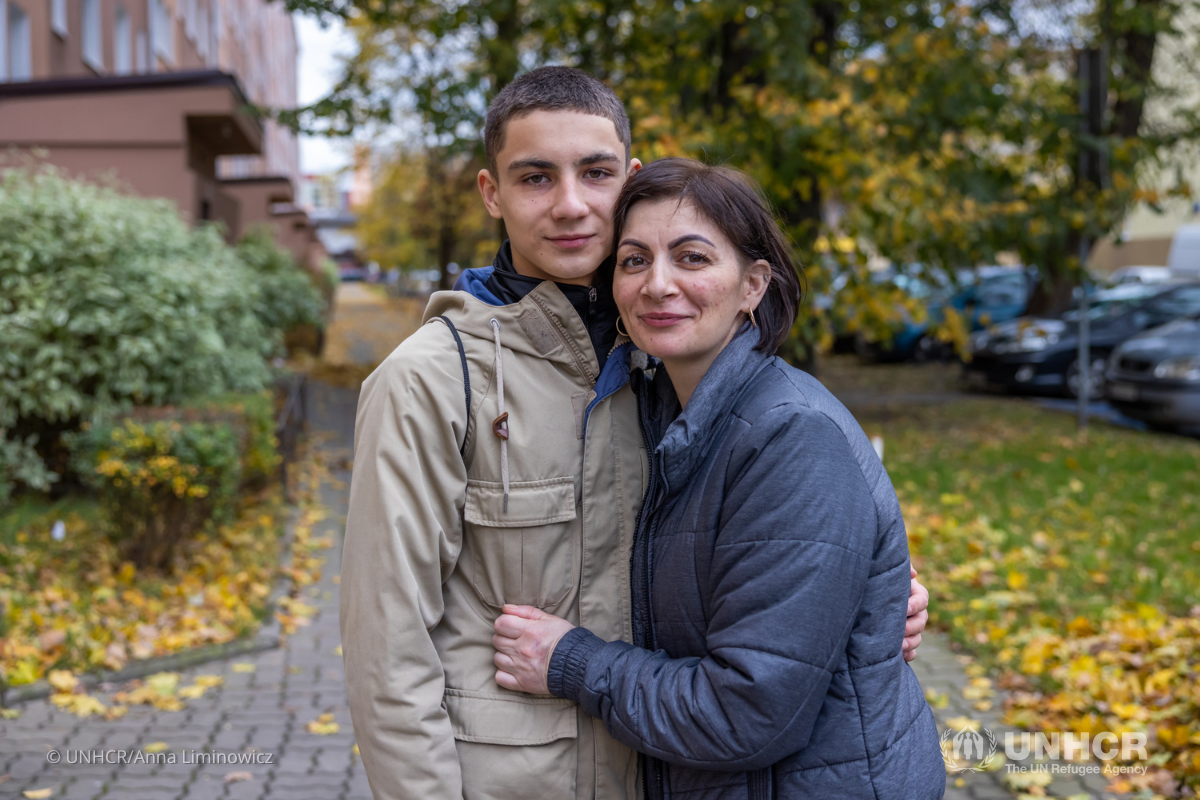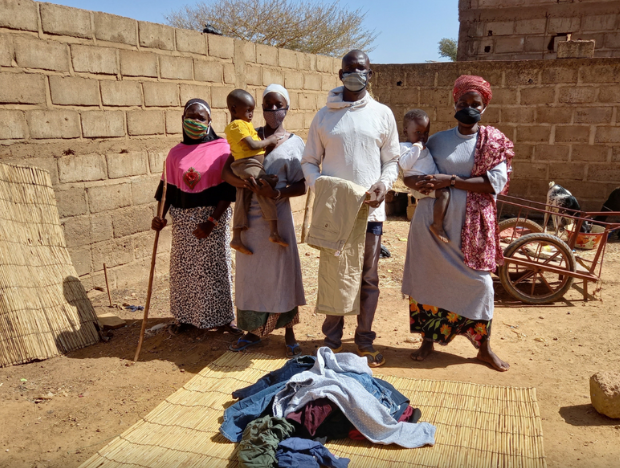How your support is protecting refugees from the novel coronavirus (COVID-19) pandemic
Since the World Health Organization (WHO) declared the coronavirus (COVID-19) outbreak a pandemic on March 11, 2020, more than a million cases have been reported worldwide in more than 175 countries. The coronavirus is a global challenge that not only tests our national healthcare systems, but also our individual capacity to handle adversity and respond in times of crisis.
In the United States, thousands of people have come together to help one another amid the spread of the disease. From organizing grocery deliveries to helping their most vulnerable neighbors to those working on the front lines of crisis, there are countless examples of how our people are doing extraordinary things during these difficult times.
On World Health Day, let’s take a look at some of the ways generous American donors are supporting the UN Refugee Agency’s work to prevent and protect refugees from the pandemic.
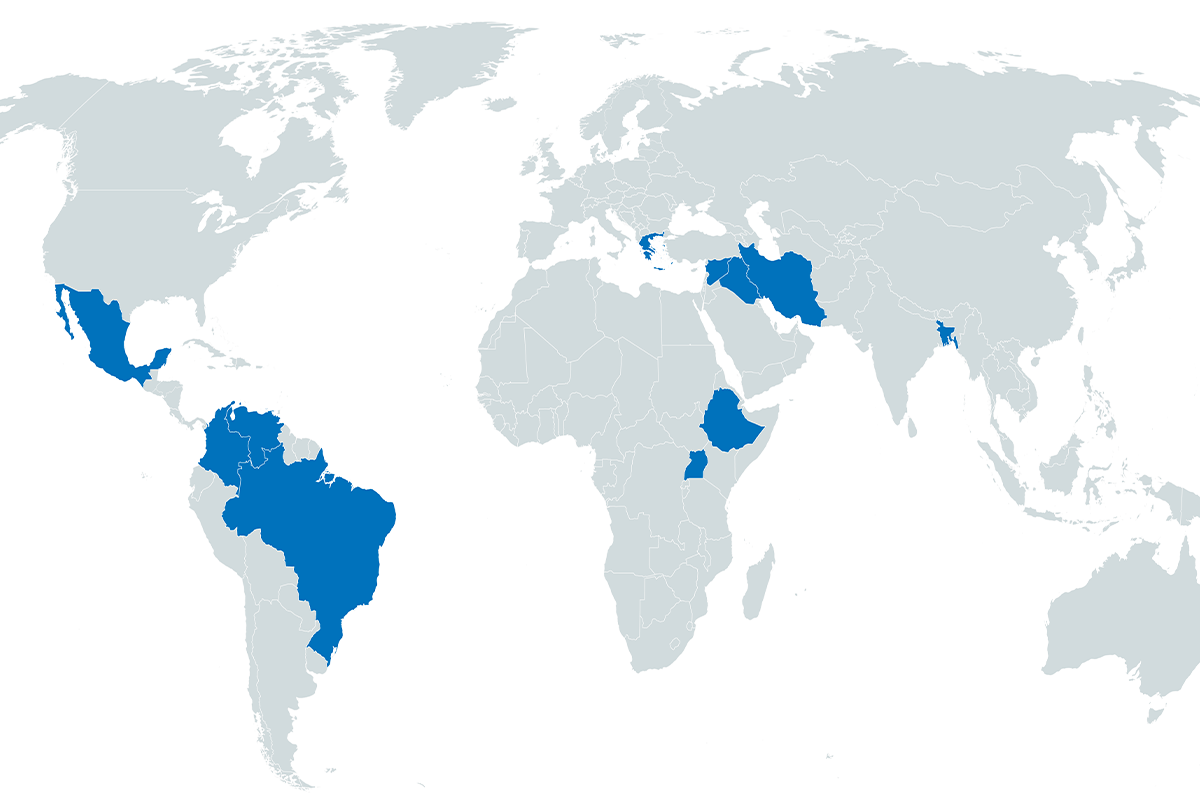
In Bangladesh, more than 280 staff have received infection prevention and control trainings to assist in the Rohingya refugee camps, where approximately 855,000 refugees are living in very dense conditions. Additional measures have also included securing access to soap and clean water, developing information materials in Burmese and Bengali languages as well as creating new isolation and treatment facilities for positive cases of COVID-19.
In Iran, the UN Refugee Agency airlifted 4.4 tons of medical aid, including face masks, gloves and essential medicines to help address critical shortages in the healthcare system. In coordination with government authorities, UNHCR has also distributed basic hygiene items - such as soap and disposable paper towels - to more than 7,500 refugee families.
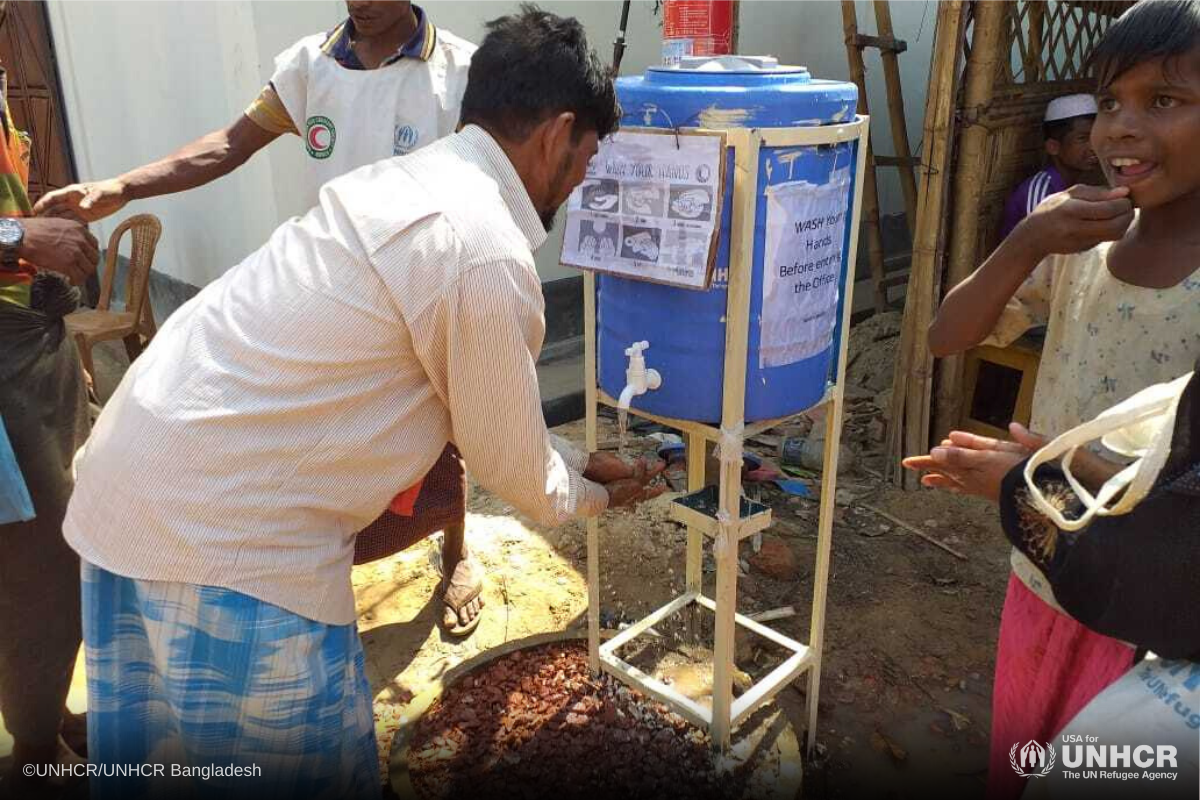
In Syria, UNHCR has reached people through local primary healthcare centers and mobile teams. It is also conducting outreach activities emphasizing hygiene and prevention measures, respiratory hygiene, distribution of soap and proper handwashing, isolation measures, as well as referral mechanisms for suspected cases.
In Jordan, temperature screening is being conducted at the entrance of the Za’atari and Azraq refugee camps - home to more than 112,000 people - and supermarkets are running extended hours to facilitate social distancing. Electricity provision has been enhanced and essential hygiene items -such as diapers and sanitary materials- have been distributed.
In Iraq, UNHCR is procuring protective and medical equipment for refugee camps including masks, disposable shoes, gloves, and medical gowns.
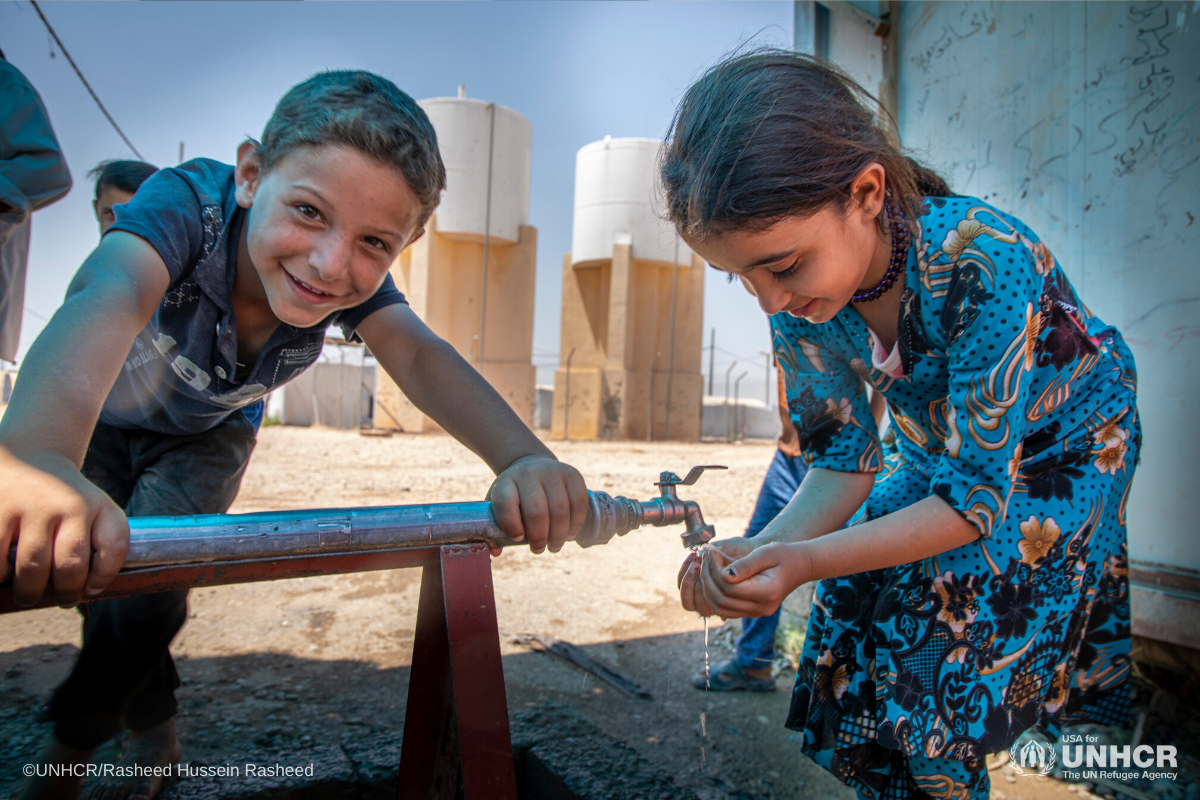
In Ethiopia and Uganda, handwashing and temperature screening facilities are in place at refugee transit centers, reception centers and health facilities. UNHCR’s preventive measures include awareness campaigns, increasing soap distributions and staff trainings in most refugee camps.
In Greece, the UN Refugee Agency is working with local authorities to increase water and sanitation services, deliver hygiene items and facilitate access to information across the Aegean islands, where more than 35,0000 refugees are living in overcrowded conditions. UNHCR also established medical units and spaces for screening, isolation and quarantine as well as offered accommodation and support to more than 5,500 unaccompanied children in the country.
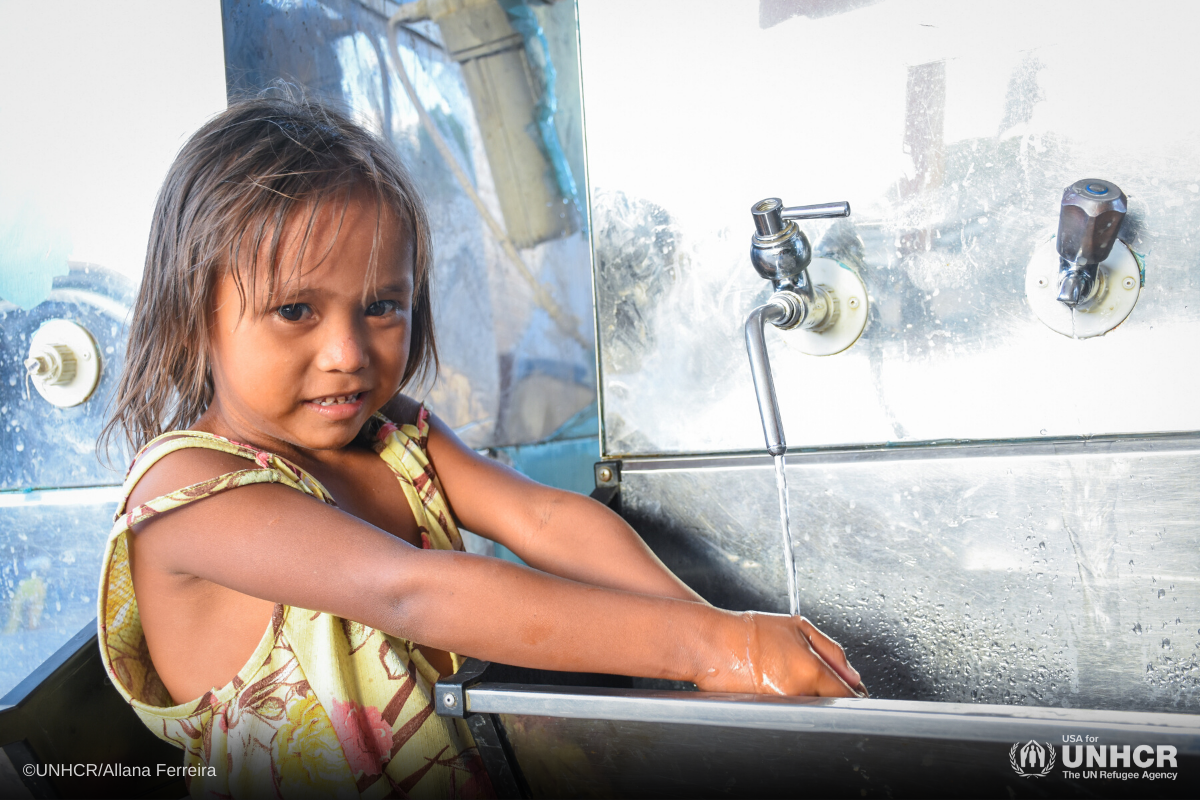
In Mexico, the UN Refugee Agency is supporting local shelters with groceries, dry goods and personal hygiene items and set up temporary handwashing and sleeping facilities to ensure people can maintain a healthy distance from one another. UNHCR has also helped establish isolation areas and has identified a number of refugee doctors, nurses, paramedics and other healthcare professionals who can be mobilized to respond to the coronavirus outbreak.
More than 30 phone lines have been installed in Colombia to provide information to Venezuelans on their rights, protection and information about route safety. The UN Refugee Agency has also incorporated hygiene measures and hand washing points in local reception centers to assist vulnerable Venezuelan families.
In Brazil, UNHCR is working with partners to establish an isolation area in Boa Vista to host suspected cases of coronavirus and distributed 1,000 hygiene kits to the most vulnerable populations.
Help us protect refugee families…
There is not a day to lose. The more you support USA for UNHCR's health, WASH and protection activities through financial and in-kind contributions, the more we will be able to prevent or mitigate the direct impact of coronavirus. By supporting USA for UNHCR, you will also help reduce the coronavirus secondary impacts – loss of livelihoods, disrupted learning and potential social instability.

